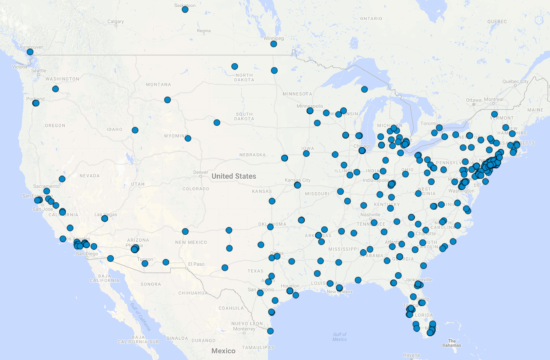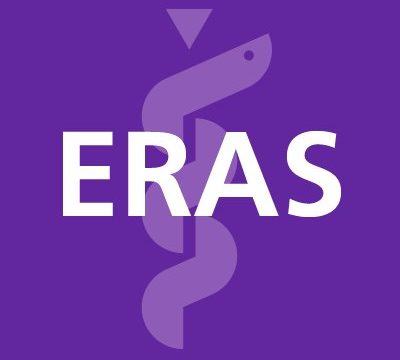This is a decision I’m asked quite frequently as an international medical graduate, IMG. There is a lot of stigma about international graduates and the quality of education and ability to come back to the US to train, which let’s be honest, at the end of the day, that’s what it’s really about.
Education Quality
This is rightfully one of the most frequently asked questions. As a St. George’s University graduate, I would only be able to speak from my own experiences. Academically speaking, I feel that SGU students are as equally well prepared as US medical students on every metric. Every student is required to pass the same board exams, the USMLE Step 1 and 2 during medical school. Because of this, the curriculum and content can’t differ drastically between schools. That being said, there are different styles of teaching, systems based is the current methodology which is consistent with most US medical schools.
The class sizes at SGU are significantly larger than any medical school ever. General class lectures (4 hours daily) are hovering in the class size of 800-900 at the time of writing this. Even personally, this is a huge turn off when it comes to looking for schools however these large lectures are balanced by small group teaching. These labs and small groups are never larger than 10 students. In my experience small groups were around 7 on average between all the courses during basic sciences.
When we left the island after 2 years and returned to the US for clinicals, that was our first experience at comparing where we stand among US medical students rotating in the hospitals. I can honestly say I did not feel like I was at a deficit. SGU students as a whole seem to have better work ethic, quicker with answers, and in some cases, gave better patient care. Of course that last point is subjective and completely dependent on who you’re comparing with but SGU did give us sufficient training when it came to dealing with patients in a controlled (simulation labs) and uncontrolled setting (health fairs and hospital exposure).
In short, SGU is as close to a US medical school experience as you can get when it comes to academics. From conversations with other Caribbean medical school students, I can’t say all Caribbean medical schools are the same however some are definitely better than others. Look into Caribbean Medical School Tier 1 schools.
Residency
After all this money and time spent in medicine, it would be worthless if you couldn’t match into a residency and train to one day practice on your own. SGU does a decent job at matching students into residency programs in both the US and Canada. That being said, there have been people who have gone to the UK and other countries also. I have quite a few posts on SGU residency – [link].
Overall though, SGU is probably the best IMG option among the Caribbean schools when it comes to match rates. Also because of volume of graduates each year, being an SGU graduate is much more beneficial in the sense that residents and faculty are more likely to also be SGU alumni. Believe it or not, this makes a bit of a difference when it comes to applications and interviews.
In terms of comparison to US graduates looking for residency and IMGs, as of now, it is still easier, and likely will remain easier for US graduates to match. Just for reference, at time of writing, SGU’s match rate is just over 85% while US graduates average around 94%.
What specialty are you interested in
An important consideration to make when choosing a medical school is what specialty you are thinking about applying. If you intend on applying to any of the primary care specialties or primary management like internal medicine, emergency medicine, pediatrics, family medicine, SGU is a great alternative to a US medical school because the opportunities are all present. Once you go into the more competitive specialties, you’ll start to see and feel the limitations of being an IMG, no matter how high or good the reputation is. At the end of the day, your application is still filtered into the IMG category. Although possible, OB/GYN, surgery, anesthesia, become a little more difficult as an IMG rather than if a US medical student was applying.
If you are positive you want to do primary care, SGU is possibly a better experience due to the access to rural and third world medicine while in Grenada with a balance of US clinical medicine during year 3 and 4. I felt this was a positive experience to have as a growing medical professional and it has taught me things I would have otherwise not been exposed to.
If you take a look at previous SGU graduate placement [link] you’ll see that almost half of all classes end up in internal medicine or family medicine. Because of this, most of SGU alumni are either residents and faculty in these programs and have grown accustomed to hiring SGU graduates because of the positive experiences and higher performance compared to other schools.
Opportunities and options
To elaborate on my last point, if you are unsure or feel that you will be aiming for the more competitive specialties, it is best for your own sake to keep all doors open if possible. If this is the case, it might be beneficial to wait another year, retake MCATs or improve your resume/application before attempting to apply to a US medical school again the following year.
Although this may seem like you are wasting time, IMGs are unfortunately still not able to acquire the more competitive positions. Over the years, SGU specifically has had graduates that are able to match into more competitive specialities but the process is slow and would require you to be the top of your class to even get an interview to these programs.
In US programs, you will still have to work hard and achieve the highest marks however you do not have to overcome the stigma of being an IMG when it comes to getting interviews from program directors.




